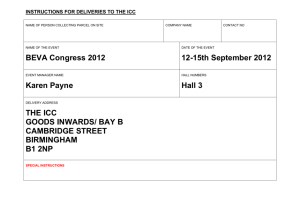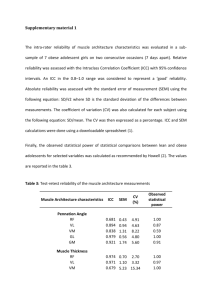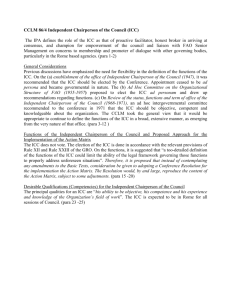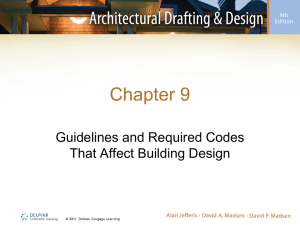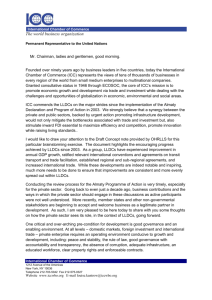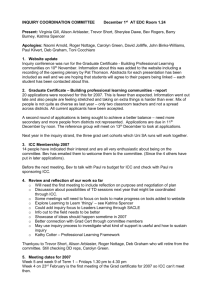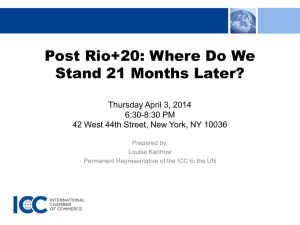LIU TURNS - dynamicchuck
advertisement
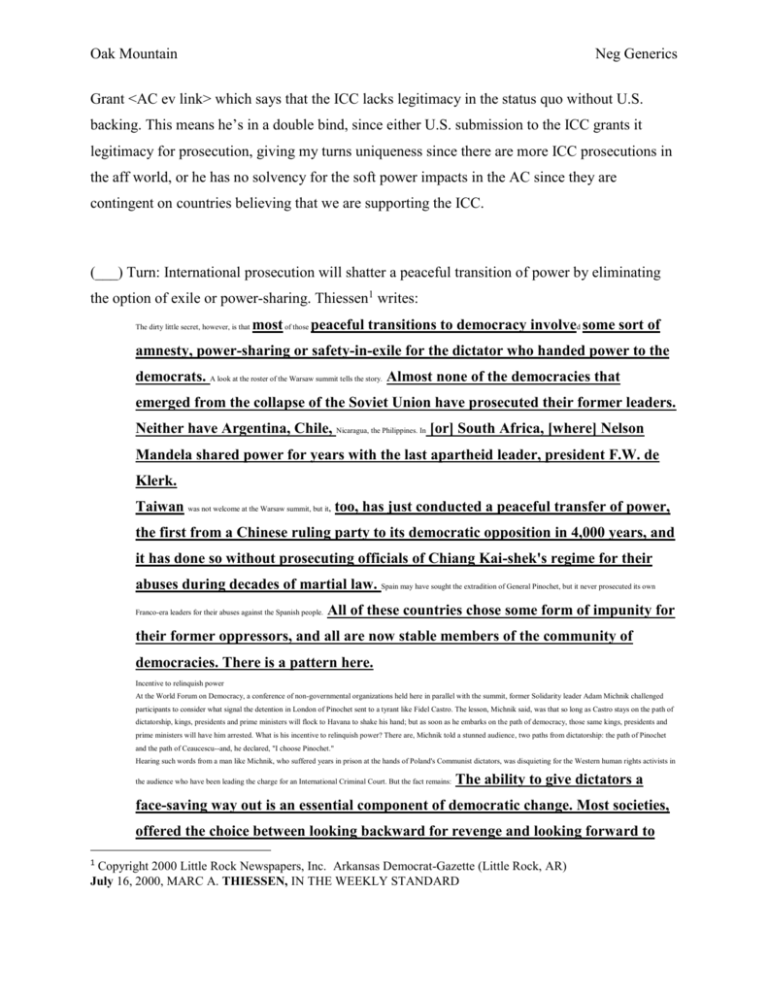
Oak Mountain Neg Generics Grant <AC ev link> which says that the ICC lacks legitimacy in the status quo without U.S. backing. This means he’s in a double bind, since either U.S. submission to the ICC grants it legitimacy for prosecution, giving my turns uniqueness since there are more ICC prosecutions in the aff world, or he has no solvency for the soft power impacts in the AC since they are contingent on countries believing that we are supporting the ICC. (___) Turn: International prosecution will shatter a peaceful transition of power by eliminating the option of exile or power-sharing. Thiessen1 writes: The dirty little secret, however, is that most of those peaceful transitions to democracy involved some sort of amnesty, power-sharing or safety-in-exile for the dictator who handed power to the democrats. A look at the roster of the Warsaw summit tells the story. Almost none of the democracies that emerged from the collapse of the Soviet Union have prosecuted their former leaders. Neither have Argentina, Chile, Nicaragua, the Philippines. In [or] South Africa, [where] Nelson Mandela shared power for years with the last apartheid leader, president F.W. de Klerk. Taiwan was not welcome at the Warsaw summit, but it, too, has just conducted a peaceful transfer of power, the first from a Chinese ruling party to its democratic opposition in 4,000 years, and it has done so without prosecuting officials of Chiang Kai-shek's regime for their abuses during decades of martial law. Spain may have sought the extradition of General Pinochet, but it never prosecuted its own Franco-era leaders for their abuses against the Spanish people. All of these countries chose some form of impunity for their former oppressors, and all are now stable members of the community of democracies. There is a pattern here. Incentive to relinquish power At the World Forum on Democracy, a conference of non-governmental organizations held here in parallel with the summit, former Solidarity leader Adam Michnik challenged participants to consider what signal the detention in London of Pinochet sent to a tyrant like Fidel Castro. The lesson, Michnik said, was that so long as Castro stays on the path of dictatorship, kings, presidents and prime ministers will flock to Havana to shake his hand; but as soon as he embarks on the path of democracy, those same kings, presidents and prime ministers will have him arrested. What is his incentive to relinquish power? There are, Michnik told a stunned audience, two paths from dictatorship: the path of Pinochet and the path of Ceaucescu--and, he declared, "I choose Pinochet." Hearing such words from a man like Michnik, who suffered years in prison at the hands of Poland's Communist dictators, was disquieting for the Western human rights activists in the audience who have been leading the charge for an International Criminal Court. But the fact remains: The ability to give dictators a face-saving way out is an essential component of democratic change. Most societies, offered the choice between looking backward for revenge and looking forward to 1 Copyright 2000 Little Rock Newspapers, Inc. Arkansas Democrat-Gazette (Little Rock, AR) July 16, 2000, MARC A. THIESSEN, IN THE WEEKLY STANDARD Oak Mountain Neg Generics democratic reconstruction, have chosen the latter. This does not necessarily mean ignoring the past. The Central and East European democracies have pursued varying levels of "lustration," exposing those who collaborated with the secret police and barring them from public office. South Africa empaneled a Truth and Reconciliation Commission that gave amnesty in exchange for confessions of apartheid-era crimes. And some nations may eventually decide their democracies are stable enough to handle prosecutions of former dictators; Poland waited 10 years before bringing charges against Wojciech Jaruzelski. The point is, every new democracy deals with its past in its own way. But an International Criminal Court would take away that choice. An independent prosecutor, answerable to no state or institution, would have the power to indict a nation's former leaders and overrule its national reconciliation process. (___) Turn: ICC intervention increases the chance of reigniting the conflict by creating a way of accusation and recrimination. Michael Smidt2 explains: [T]he ICC might actually defer reconciliation by stirring up the participants in a conflict that has ended through its attempt to punish those guilty of violating international law. Sir Graham Bower remarked: This Court would render a peace impossible. When the soldiers and sailors had finished fighting, when the hostilities were over and the soldiers and sailors on both sides were ready to shake hands with one another, as they are today, the lawyers would begin a war of accusation and counter accusation and recrimination. Such a war would render peace or reconciliation impossible. (__) Turn: The ICC prosecutes the black man rather than the true perpetrator. Thus, structural problems with the court preclude actually solvency and allow higher-up whites to escape with impunity. Keith Harmon Snow writes:3 Behind the media smokescreens are people whose involvement has been documented and exposed, but there is always some African fall guy - the “embraceable” Black 2 Major Michael L. Smidt, Professor, International and Operational Law, U.S. Army Judge Advocate General's School, The International Criminal Court: An Effective Means of Deterrence? 3 http://www.sfbayview.com/2008/merchants-of-death-exposing-the-corporate-financed-holocaust-in-africa/ Oak Mountain Neg Generics subordinate or “rebel” commander - charged with war crimes and used to deflect attention from the leaders of organized white-collar crime networks. Blacked out are the corporate executives, government officials and expatriate personnel of Western enterprises whose success amidst chaos implicates them in the deracination and death of millions of Black people. What’s behind the recent hostilities and media posturing in Central Africa? On a darkling plain in a far away place the skeletons of hundreds of unnamed people lie strewn over the land amidst the red dirt and brown grasses scorched by the equatorial sun. Bones poke into the air here and there, hidden by the tall grass, tripping you up as you walk; others lie bleaching white in piles where the bodies fell. These are the killing fields of Bogoro, a small hillside village on a southerly road out of Bunia, a metropolis of suffering in the wild, wild east of Congo. The grassy plains of Bogoro were guarded by soldiers and when I arrived the militia of the day wore black trench coats and black mirror sunglasses to enhance the aura of terror that surrounds them. With AK-47s slung over their shoulders, they talked on shiny Nokias and Motorolas and Samsungs - cell phones built with the blood minerals of the Congolese people. Sandrine - not her real name - is a survivor who participated in the massacre at Bogoro. I interviewed Sandrine, just seventeen at the time, in 2007, and she recounted her ordeal as the sex slave of soldiers. Sandrine told how people were forced by militia commanders to chase down neighbors and kill or be killed. I found Sandrine living in misery in an evacuated refugee camp. Sandrine knows nothing at all of the vast mining operations or minerals shipments being flown out of remote jungle airstrips in her home territory - or even that such airstrips exist. Ditto for the Congolese researchers I met, in Orientale, who worked with the International Criminal Court. Moto Gold? Mwana Africa? Walter Kansteiner? They had never heard of such companies, or such people. In Western media reportage, the plunder of raw materials in Congo is usually de-linked from the killing, even though the extractive industries are directly behind it and even though almost everyone has begun to parrot the accusation of “resource wars” in Congo. The Bogoro massacre occurred in February 2003 and, like the Hutu-Tutsi stories from Rwanda, the media whipped up the specter of ancient tribal animosities between Hema and Lendu tribes. But the real story is not quite so black and white. Or is it? Today the International Criminal Court (ICC) holds three Congolese “warlords” in the ICC prison at The Hague, Netherlands, and all three were associated with events at Bogoro. However, the white patrons reaping the profits behind the bloodletting in the eastern Congo are protected by a new humanitarian order predicated on permanent inequality, structural violence and race politics. (___) Turn: The threat of ICC prosecution increases atrocities. Gilligan4 writes: Third the model has implications for the criticism that [The] ICC will create a system of “Cadillac justice” in which leaders are tried fairly by the ICC and low-level perpetrators are subjected to harsh and unfair trials at home. The point of this criticism, which was raised by Roth (2002) among others, is mainly normative—such a result is unfair on its face.22 However, such a system would also be detrimental to deterring atrocities. If the ICC were able to compel domestic political agents to turn over deposed atrocities perpetrators to the ICC the deterrent effects described in the model would disappear. The crux of the issue is the severity of punishments. The ICC is barred from handing down a death sentence— something many atrocity-committing leaders would face from domestic political rivals. If a leader knew that his domestic opposition would be forced to turn him over to the ICC if he were deposed, the effect on deterring atrocities and on the leader’s incentives to step down would be the same as reduc[ed]ing the value of r, the comparative statics of which I explored in Figure 3, and the ICC could actually lead to more atrocities according to this analysis. 4 Gilligan, Michael J. "Is Enforcement Necessary for Effectiveness? A Model of the International Criminal Regime." New York University, pg. 26. <http://www.yale.edu/irspeakers/Gilligan> Oak Mountain Neg Generics (___) Turn: U.S. submission to the ICC would lend support to an illegitimate institution, which gives further credibility to corrupt regimes. Voigt5 writes: Judges will also hail from nations that are oppressed by tyranny or that otherwise lack our fundamental understanding of liberty. One glance at the mechanism of selecting judges and the signatories to the treaty reveals that this concern is much more than improbable speculation. The 18 judges of the ICC must be "nationals of a State Party"[46] and "[n]o two judges may be nationals of the same State."[47] This pooling of judges from many nations creates a high probability that some ICC judges will be nationals of States that do not share our fundamental liberties. At least four signatories of the Rome Treaty--Iran, Syria, Sudan, and Cuba--are State sponsors of terrorism.[48] Notably, Sudan has been the site of a horrific campaign of genocide against Christians.[49] Other signatories include Nigeria, Algeria, and Yemen.[50] By embracing lawless dictatorships, the Rome Treaty implicitly gives these corrupt regimes credibility and undermines efforts to foster and encourage the freedom of oppressed peoples. Solvency Takeouts (__) Since the ICC has no enforcement ability, the prosecutor is forced to prosecute only in areas where it can negotiate with rogue governments. Grono6 writes in 08’: There is also less good news. The ICC has yet to hold its first trial. All of the formal investigations are in Africa [12], even though atrocities within the ICC's jurisdiction have been, and continue to be, committed on other continents as well. Why is this? For a start, Africa is home to many of the most violent and deadly conflicts within the court's remit, so it is natural the prosecutor has started there. Moreover , the governments of the DR Congo, Uganda and the CAR have invited the prosecutor to conduct investigations, requests he has willingly accepted. This has advantages - the prosecutor is likely to get the support of those governments while he conducts his inquiries. But it also has drawbacks, as Voigt, Steven. “An Exposition on the International Criminal Court—its antagonism to Constitutional Due Process and a Just Alternative.” August 8, 2005. http://www.renewamerica.us/analyses/050815voigt.pdf 5 6 http://www.opendemocracy.net/node/44934/pdf Oak Mountain Neg Generics that support is implicitly conditional on his not going after those in power - which is perhaps why in these three countries only rebels, warlords and opposition leaders have been indicted so far. Even Jean-Pierre Bemba [13] was arrested for his role as a leader of a rebel group responsible for offences in the CAR rather than for his role in the DR Congo itself (see Gérard Prunier, "Chad, the CAR and Darfur: dynamics of conflict [13]", 18 April 2007) (__) The ICC had multiple difficulties at its first trial, which essentially devolved into a farce. David Charter7 in 09’ writes: The opening day of testimony at a landmark trial of an alleged Congo warlord ended in shambolic fashion today with the star first witness dramatically retracting his claim to have been a child soldier. Amid concerns about his protection the witness, whose name and age were not released, told the International Criminal Court in the morning that he was recruited for a military training camp on his way home from primary school by soldiers under the ultimate command of Thomas Lubanga, the defendant. But to the embarrassment of the prosecution, in the afternoon the witness [later] started to contradict his account and suddenly suggested that he had been told what to say by an unnamed non-governmental organisation. The case is the first to have come to trial since the ICC was created ten years ago as the world's only permanent war crimes tribunal and the proceedings are being closely watched by legal experts and potential defendants, as well as countries yet to sign up to the court such as the US, Russia, India and China. Mr Lubanga, 45, has been awaiting trial since 2006 on charges of recruiting child soldiers as young as ten in the Democratic Republic of Congo. He is also accused of commanding the Union of Congolese Patriots which committed atrocities in an ethnic conflict in which thousands were killed. As he watched from a corner of the courtroom, the pattern was set for a chaotic day when the microphone link to translators repeatedly failed and the witness had to repeat his oath three times. The start had already been delayed while it was explained to the young witness that he might face prosecution in the Democratic Republic of Congo if he incriminated himself. The witness was then examined by Fatou Bensouda, the deputy prosecutor rather than - as many were expecting - the court's high-profile main prosecutor, Luis Moreno-Ocampo, who was said to be at the World Economic Forum in Davos. Two of the questions that Ms Bensouda asked in open court - including the date of birth of the witness - led the President of the three judges, British High Court judge Sir Adrian Fulford, to intervene to suggest that the court go into closed session to protect the young man's identity. Finally both the defence and prosecution disputed the translation of several passages of witness testimony from his native Swahili into French and English, including the exact claims he seemed to make about being put up to his evidence by an NGO. 7 http://www.theaustralian.news.com.au/story/0,25197,24978655-2703,00.html
